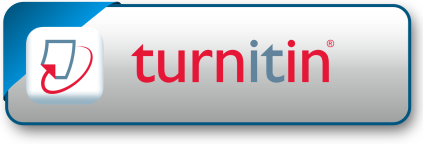MOTIVASI DALAM MANAJEMEN PELAYANAN ADMINISTRASI PUBLIK DI DINAS TATA RUANG KABUPATEN TANGERANG
DOI:
https://doi.org/10.24853/swatantra.21.2.127-132Keywords:
Motivasi Pelayanan Publik, DTRB, KualitasAbstract
Tujuan dari penelitian ini adalah mengetahui peran organisasi dalam menumbuhkembangkan motivasi pelayanan publik di DTRB Kabupaten Tangerang. Pendekatan penelitian yang digunakan adalah kualitatif,unit analisis dalam penelitian ini adalah pegawai DTRB Kabupaten Tangerang. Penelitian ini dilakukan dengan metode deskriptif kualitatif. Teknik yang digunakan dalam pengumpulan data melalui wawancara dan observasi untuk mengetahui motivasi pelayanan public di DTRB Kabupaten Tangerang. Hasil penelitian menunjukkan motivasi pelayanan publik di DTRB Kabupaten Tangerang diukur Kabupaten Tangerang. Pendekatan penelitian yang digunakan adalah kualitatif,unit analisis dalam penelitian ini adalah pegawai DTRB Kabupaten Tangerang. Penelitian ini dilakukan dengan metode deskriptif kualitatif. Teknik yang digunakan dalam pengumpulan data melalui wawancara dan observasi untuk mengetahui motivasi pelayanan public di DTRB Kabupaten Tangerang. Hasil penelitian menunjukkan motivasi pelayanan publik di DTRB Kabupaten Tangerang diukur berdasarkan empat dimensi perry masih kurang. Oleh karena itu perlu peran organisasi untuk menumbuhkembangkan motivasi pelayanan publik beberapa diantaranya pemberian reward dan punishment kepada pegawai, pegawai di dorong untuk mengemukakan konflik dan kritik secara terbuka , pegawai diberika sarana dan prasarana untuk menunjang pekerjaan, menetapkan SOP dalam setiap program ,dan pimpinan perlu memperbesar peluang promosi.References
http://logowa.ui.ac.id/w/287_pentingnya-sdm-yang-berkualitas-dalam-pemerintahan/ http://dwimirani.unsri.ac.id/index.php/posting/31 http://tentangpelayananpublik.blogspot.com/
Nazaruddin, 2012. Hubungan Motivasi Kerja dengan Kinerja Pegawai di Badan Kepegawaian Daerah dan Diklat (BKDD) Kabupaten Maros. Skripsi. Universitas Hasanuddin.
Notoatmodjo,Soekidjo. 2009. Pengembangan Sumber Daya Manusia. Jakarta: Rineka Cipta Pratomo, Heru Yogo, Yeasy Darmayanti, Dandes Rifa. “Pengaruh Public Service Motivation, Individual Job Satisfaction Dan Organization Citizenship Of Behavior Terhadap Kinerja Di Lingkungan Pemko Padang”.
Perry, James L..”Measuring Public Service Motivation An Assessment Of Construct Realibility and Validity”. Journal of Public Administration Research and Theory (J-PART). Volume 6 No.1.p 5-23.
Puput Tri Komalasari, Moh. Nasih, dan Teguh Prasetio. “Pengaruh Public Service Motivation Dan Organizational Citizenship Behavior Terhadap Kinerja Organisasi Pemerintahan”. Jurnal Manajemen Teori dan Terapan 2009.
Purwanto, dyah Ratin Sulistyastuti. 2007. Metode Penelitian Kuantitatif. Yogyakarta: Gava Media.
Rusfa, Ananda Amalia. 2014. Motivasi Kerja Pegawai Kantor Kecamatan Panakkukang Dalam Pelayanan Administrasi Kepada Masyarakat. Skripsi. Universitas Hasanuddin.
Sinambela, Lijan Poltak. 2006. Reformasi Pelayanan Publik (Teori, Kebijakan, dan Implementasi).Jakarta: Bumi Aksara
Sugiyono. 2003. Metode Penelitian Administrasi dilengkapi dengan Metode R&D. Bandung: Alfabeta.
Sugiyono. 2011. Metode Penelitian Kuantitatif Kualitatif dan R&D. Bandung: Alfabeta. Sunyoto, Danang dan Burhanudin. 2011. Perilaku Organisasi. Yogyakarta: CapsSuwatno, Donni Juni Priansa. 2013. Manajemen SDM dalam Organisai Publik dan Bisnis. Bandung: Alfabeta.
Syamsir dan Muhammad Ali Embi. “Urugensi Public ServiceMotivation dalam Mewujudkan Pelayanan Publik yang Prima”. Proceeding Simposium Nasional Otonomi Daerah 2011. Thoha, Miftah. 2007. Perilaku Organisasi (Konsep Dasar dan Aplikasinya). Jakarta: PT. RajaGrafindo Persada.
Tim Prima Pena. Kamus Besar Bahasa Indonesia. Surabaya: Gita Media Press.
Yudiatmaja, Wayu Eko. 2012. Dinamika Administrasi Negara Kontemporer (Konsep dan Isu). Yogyakarta: Capiya Publishing.
Downloads
Published
Issue
Section
License
Copyright aims to protect the specific way the article has been written to describe an experiment and the results. SWATANTRA is committed to its authors to protect and defend their work and their reputation and takes allegations of infringement, plagiarism, ethical disputes, and fraud very seriously. SWATANTRA is published under the terms of the Attribution-NonCommercial 4.0 International (CC BY-NC 4.0). Authors retain copyright and grant the journal right of first publication (online and print) with the work simultaneously. We use the restrictive license (non-commercial) as follows:
BY (attribution): Users are allowed to share, distribute and redistribute the published article in any medium or format, with an identification of the authors and its initial publication in this journal. Authors are encouraged to post and distribute their articles immediately after publication (e.g., institutional or public repositories, personal websites). Authors are allowed to enter into additional contractual arrangements for the non-exclusive distribution of the published and an acknowledgment of its initial publication in this journal.
NC (non-commercial): Users are not allowed to use the article commercially without the permission of the authors. Authors agree explicitly that the published article is indexed worldwide in databases, repositories, and indexation services, even if these services operate on a commercial basis. Authors grant SWATANTRA explicit the right to include the published articles in databases, repositories, and indexation services. You can see examples of personal and commercial use on this link.
Below you may find the full text of the license signed by authors.
License
- License to Publish
The non-commercial use of the article will be governed by the Attribution-NonCommercial 4.0 International (CC BY-NC 4.0). The author hereby grants SWATANTRA an exclusive publishing and distribution license in the manuscript include tables, illustrations, or other material submitted for publication as part of the manuscript (the “Article”) in print, electronic, and all other media (whether now known or later developed), in any form, in all languages, throughout the world, for the full term of copyright, and the right to license others to do the same, effective when the article is accepted for publication. This license includes the right to enforce the rights granted hereunder against third parties.
- Author’s Warranties
The author warrants that the article is original, written by stated author/s, has not been published before, contains no unlawful statements, does not infringe the rights of others, is subject to copyright that is vested exclusively in the author and free of any third party rights, and that any necessary written permissions to quote from other sources have been obtained by the author(s).
- User Rights
Under the Creative Commons Attribution-Non Commercial 4.0 International (CC BY-NC 4.0) license, the author(s) and users are free to share (copy and redistribute the material in any medium or format) and adapt (remix, transform, and build upon the material). Users must give appropriate credit, provide a link to the license, and indicate if changes were made.
- Rights of Authors
Authors retain the following rights:
- Copyright, and other proprietary rights relating to the article, such as patent rights,
- The right to use the substance of the article in future own works, including lectures and books,
- The right to reproduce the article for own purposes, provided the copies are not offered for sale, and
- The right to self-archive the article.
- Co-Authorship
If the article was prepared jointly with other authors, the signatory of this form warrants that he/she has been authorized by all co-authors to sign this agreement on their behalf, and agrees to inform his/her co-authors of the terms of this agreement.








